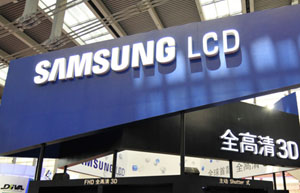Antitrust probes need to be more open
By Tao Jingzhou (China Daily) Updated: 2014-09-01 06:44Multinationals are having their share of troubles because of enforcement actions initiated by Chinese government authorities. Foreign companies involved in bribery, food safety and antitrust probes include GlaxoSmithKline, Nestle, Microsoft, Daimler, Audi and Qualcomm. Some of them believe they are being disproportionately singled out.
The actions were on the agenda of the China-US Strategic Economic Dialogue earlier this year. On July 12, the US Treasury Department said: "China recognized that enforcement of its competition law should be fair, objective, transparent, and non-discriminatory."
Yet, more multinationals in different industries are being probed by Chinese government bodies and are under attack by the media, especially in connection with antitrust issues.
Thirty years ago, the government, desperate for foreign capital, offered special breaks to overseas companies. Such privileges have gradually been abolished and the same standards applied to domestic and foreign enterprises.
The media and netizens have wondered about the motives behind the recent actions against foreign businesses. The Chinese government has been accused of protecting its domestic enterprises by suppressing foreign competitors. It has been said some actions were taken out of concern for national security given recent cyber espionage activities.
The events have also been labeled as retaliation for trade restrictions on Chinese firms, such as those against Huawei in the United States. Another theory is that multinationals are much easier targets for authorities, who dare not target big State-owned firms whose interests are intertwined with those in power.
In their defense, Chinese government agencies argue that they are not specifically targeting foreign companies. The actions are meant to tighten the regulatory framework in the market.
But developments seem to suggest otherwise. It seems foreign investors did not receive transparent, non-discriminatory treatment. This becomes clearer when it comes to China's National Development and Reform Commission's recent investigations of pricing violations.
First, investigations against multinational companies far outnumber those against domestic ones. In cases where both foreign and local businesses, such as car producers, use the same pricing practices that allegedly violate antitrust laws, only foreign firms have been probed.
Sanctions imposed on foreign and Chinese companies have also been significantly different. The investigations into China Mobile and China Unicom, two State-owned telecom giants, ended with a "recommended restructuring" without any penalties.
Recent enforcement actions against foreign companies also raise serious concerns over the opaque nature of the commission's decision-making. The firms being investigated are not aware of the evidence upon which the commission relied, let alone allowed to rebut it. Such lack of due process has not only puzzled the companies but also severely undermined the government's efforts to call for the rule of law.
 |
 |
| Microsoft not transparent with sales information: regulator | Top 9 anti-trust cases in China |
- Chinese insurance firms fined $18m for price-fixing
- Liaoning sees 3.4% rise in trade
- Sinopec leads Top 500 Chinese Enterprises list
- Legend Holdings raises millions with partners
- FTZ's platform goes online
- Shanghai shares close at 15mth high
- Guangzhou firm forges Australian link for senior living venture
- China remains world's largest trademark holder

















